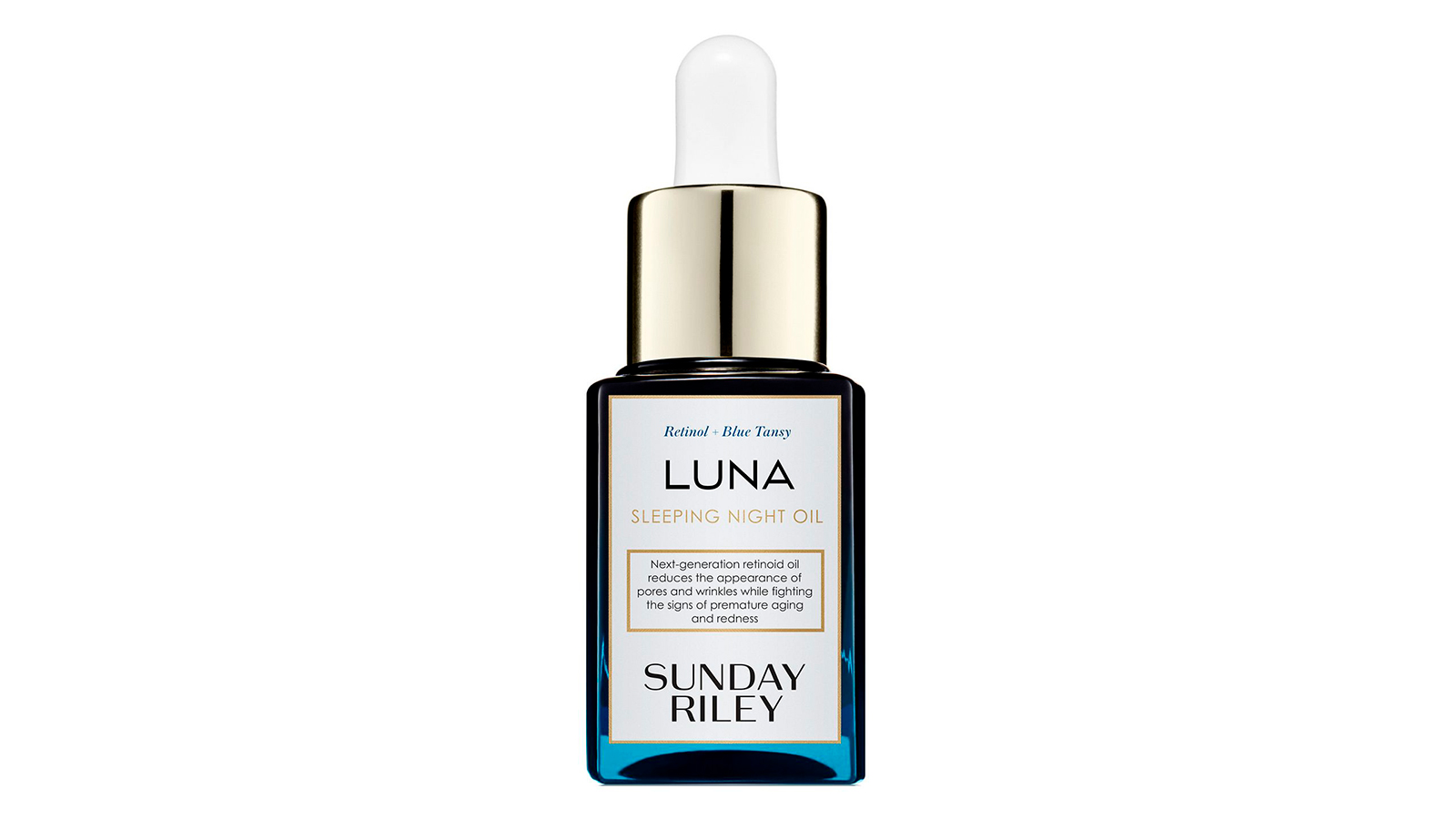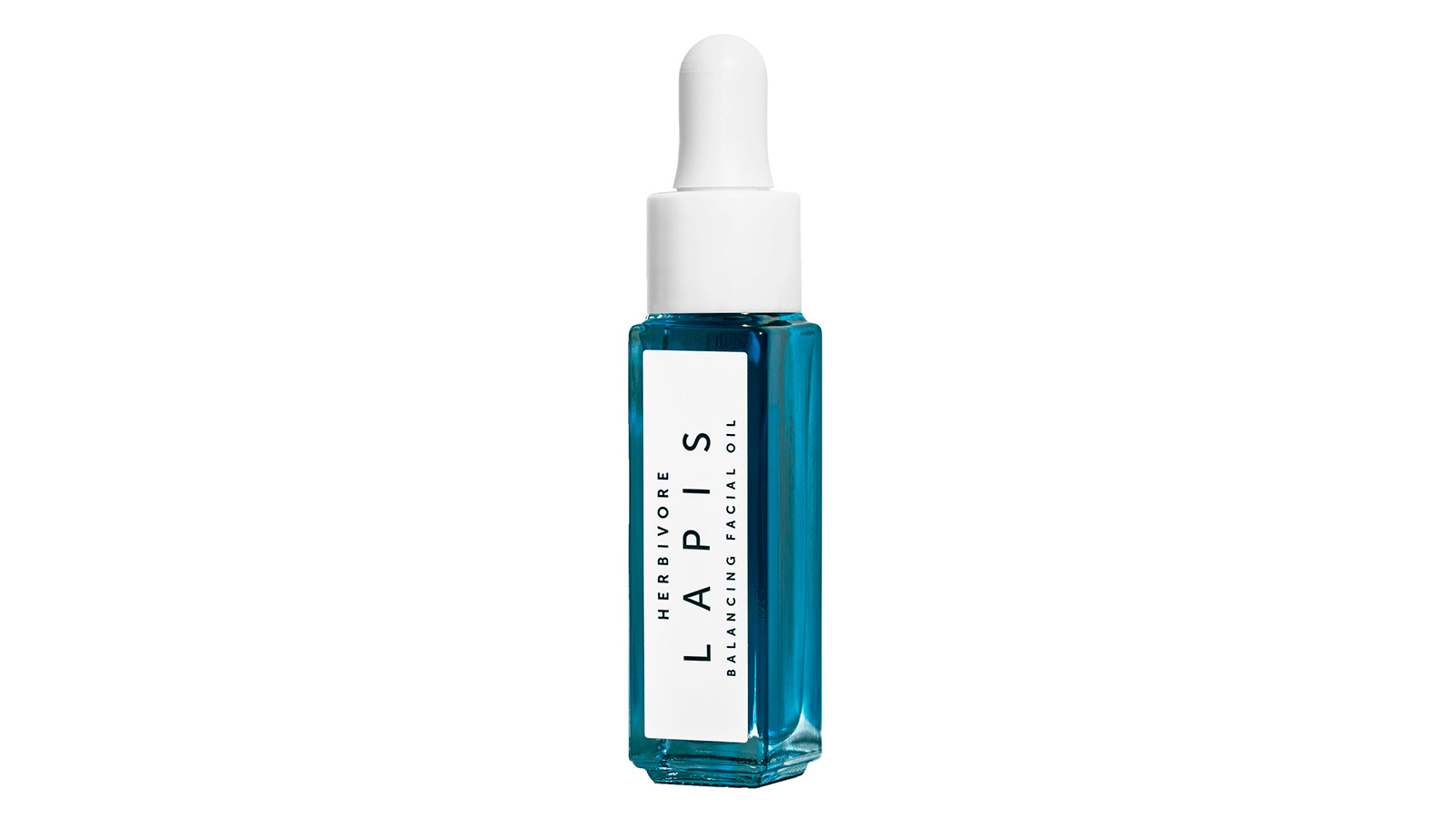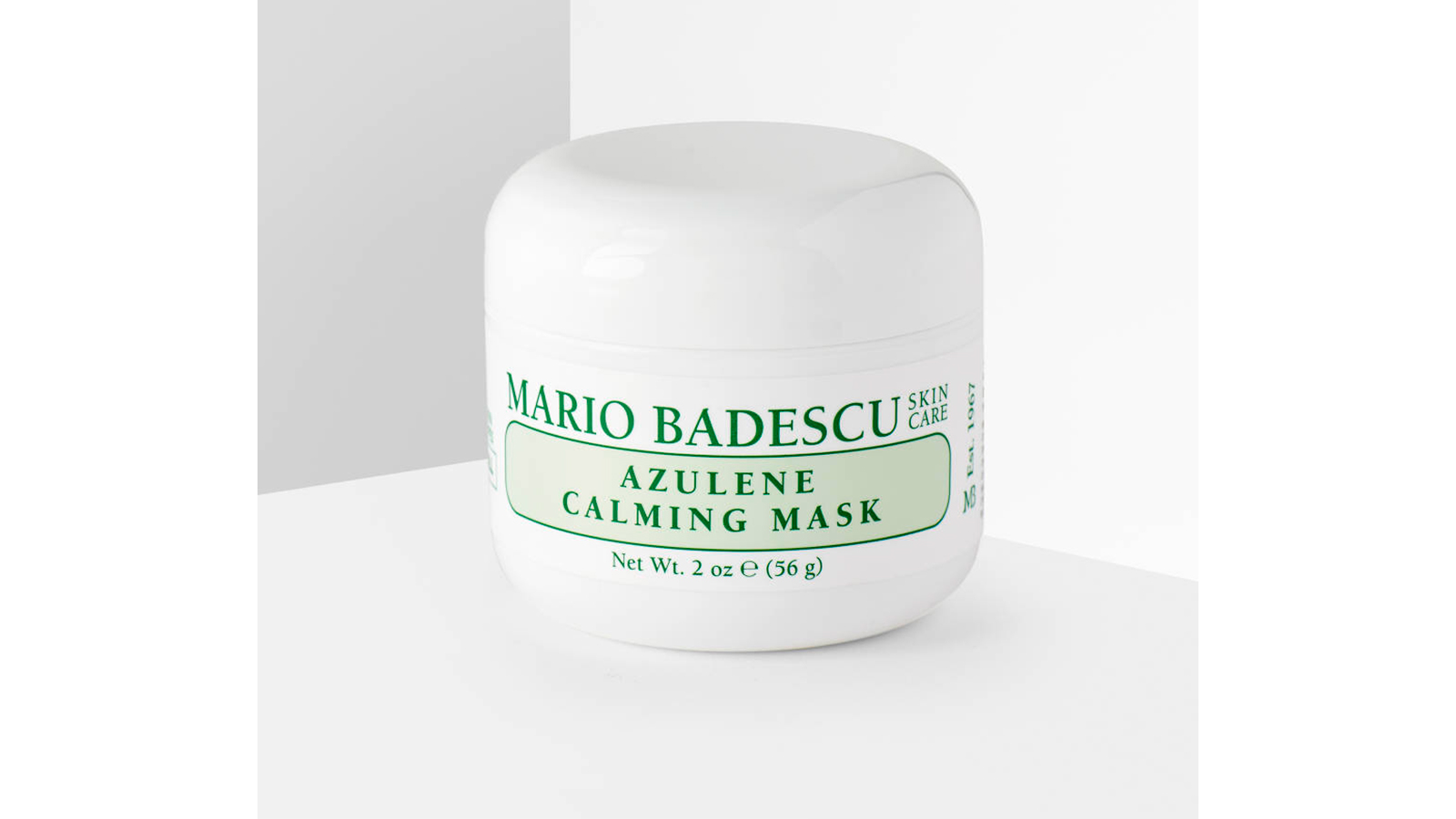Azulene oil for skin - if you use a face oil make sure it contains this ingredient
Dry, irritated skin? Azulene oil in a face or cream will become your new BFF

Thanks to its skin soothing powers, azulene oil is set to become your favourite winter face oil.
Granted, azulene oil sounds more like something you'd use for a car motor than slosh on your skin. Then there's the colour - a distinct Avatar blue hue - which does it no favours, either.
But while it sounds gimmicky, azulene oil does serve a purpose and your dry, irritated skin will drink it up .
Ahead, dermatologist Dr Anita Sturnham explains why and how this buzzy ingredient works.
What is azulene oil?
Azulene oil is a derivative of German chamomile, yarrow or blue tansy flowers.
“It has a strong aroma and has been used for many years in the beauty and grooming industry," says Sturnham. "It’s actually approved by the FDA as a colourant rather than as a skincare ‘active’. In theory, being an extract from Chamomile, it could have antioxidant and skin soothing properties."
How does it benefit skin?
Those anti-inflammatory benefits make it the perfect go-to for sensitised skin, which is why you'll often see azulene in products meant to be used after waxing.
Sign up to our free daily email for the latest royal and entertainment news, interesting opinion, expert advice on styling and beauty trends, and no-nonsense guides to the health and wellness questions you want answered.
In skincare, the ingredient is often paired with products containing retinol as azulene oil offsets any potential redness or irritation." Sunday Riley Luna Sleeping Night Oil is a good example, where the regenerative properties are matched only by the calming power of the oil.
It's also attractive in a face oil such as Herbivore Lapis Balancing Facial Oil because it's considered a dry oil, so absorbs quickly without leaving behind a greasy residue. Here azulene oil also serves an antibacterial role and sits alongside linoleic acid, which is known for its ability to balance oily, blemish-prone skin.
If you prefer adding a more intensive weekly treatment to your current regime, try Mario Badescu Azulene Calming Mask.
Azulene and balsam peru join forces to calm skin while clays gently absorb impurities, making this ideal for when skin is kicking up a fuss or you're dealing with all the ways your face mask is ageing you.
Consider this all you need to fight back against parched, flaky skin season.
Sunday Riley Luna Sleeping Night Oil, £45, Cult Beauty

Herbivore Lapis Balancing Facial Oil, £22, Cult Beauty

Mario Badescu Azulene Calming Mask, £16, Beauty Bay

Fiona Embleton is an award-winning beauty director with over 15 years of industry experience and has held staff positions on Stylist, Marie Claire, Cosmopolitan and Glamour. She covers all aspects of the beauty industry and specialises in long-read features, fragrance and skincare.